'I remember the screaming in Holloway Prison'
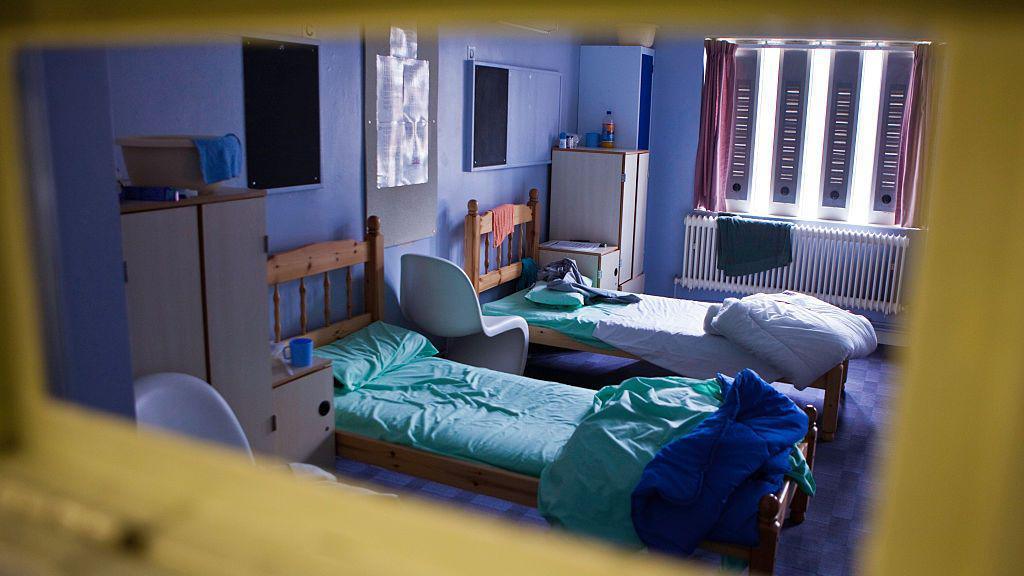
A view through the cell door to the the rooms shortly before the prison was closed
- Published
"I remember people screaming and banging on the doors, these maddening screams," recalls former inmate Gerrah Selby on her return to Holloway Prison.
"For ages I couldn't go to sleep, through the noise and the being too scared to fall asleep, but I so wanted to sleep through my sentence."
Gerrah, who was sentenced to four years for offences relating to animal rights activism, is one of six former inmates who returned to what was Europe's largest jail for women, along with the makers of a new documentary, Holloway, which recently had its premiere at the London Film Festival.
While back at the crumbling north London jail - which has been bulldozed since their visit - and with the help of a trauma therapist, they reflected on their time there and the events that led to their arrests.
As the women sat on dust-covered chairs, with a backdrop of peeling walls, the memories came flooding back.
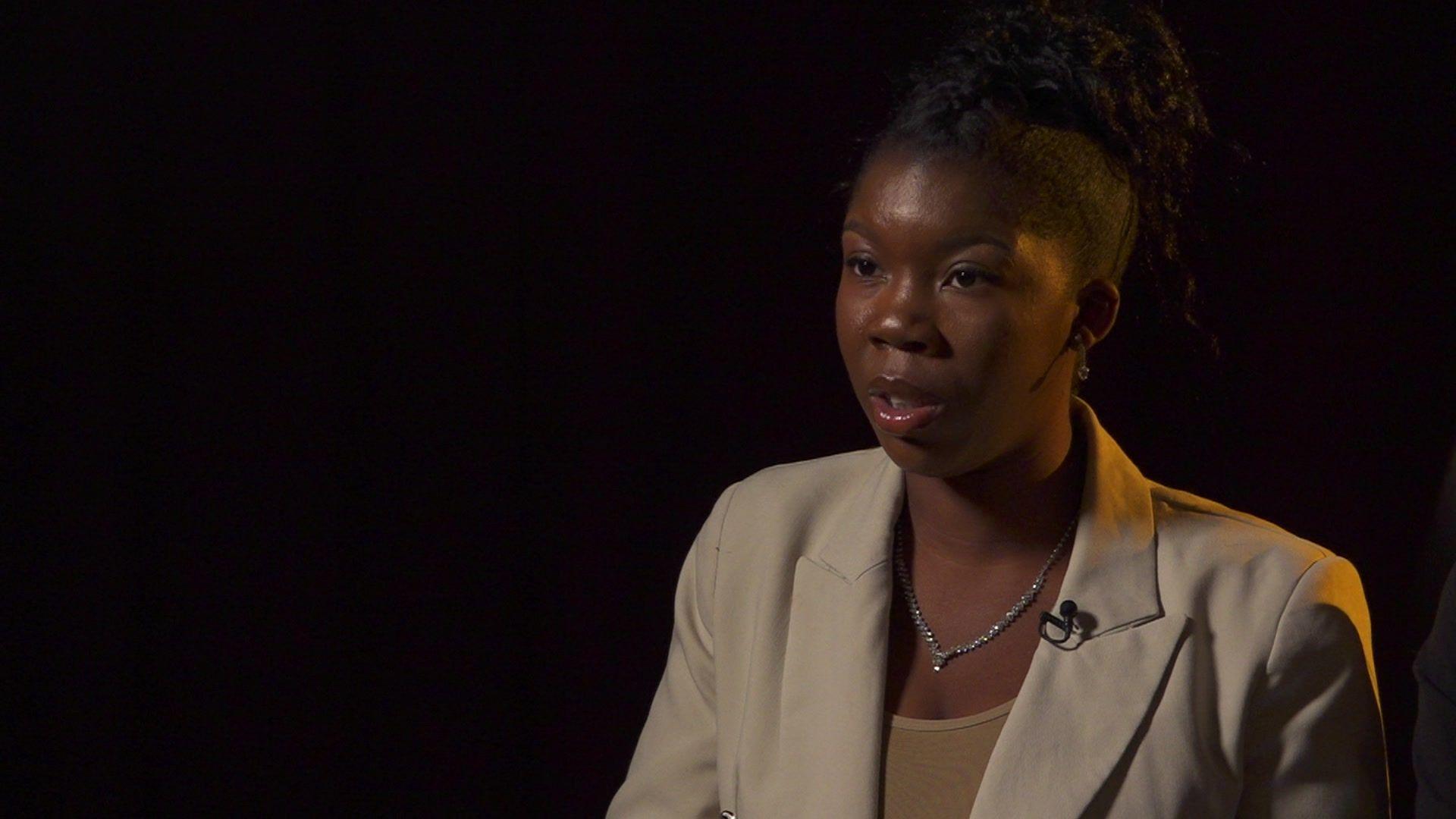
Tamar Mujanay says she found her return to Holloway "liberating"
Tamar Mujanay, who was first arrested aged 11 after getting into a fight, she became involved in gangs and was jailed for two years when she was 18.
"I'd always heard about Holloway in the media and the history of it. But getting into that space, I didn't know what to expect," she told BBC London.
"I felt so small, it was like another dimension. It's just rules, rules, rules; you feel powerless.
"There's no sense of nurture. It's like 'you've done a crime, you're here to do the time'."
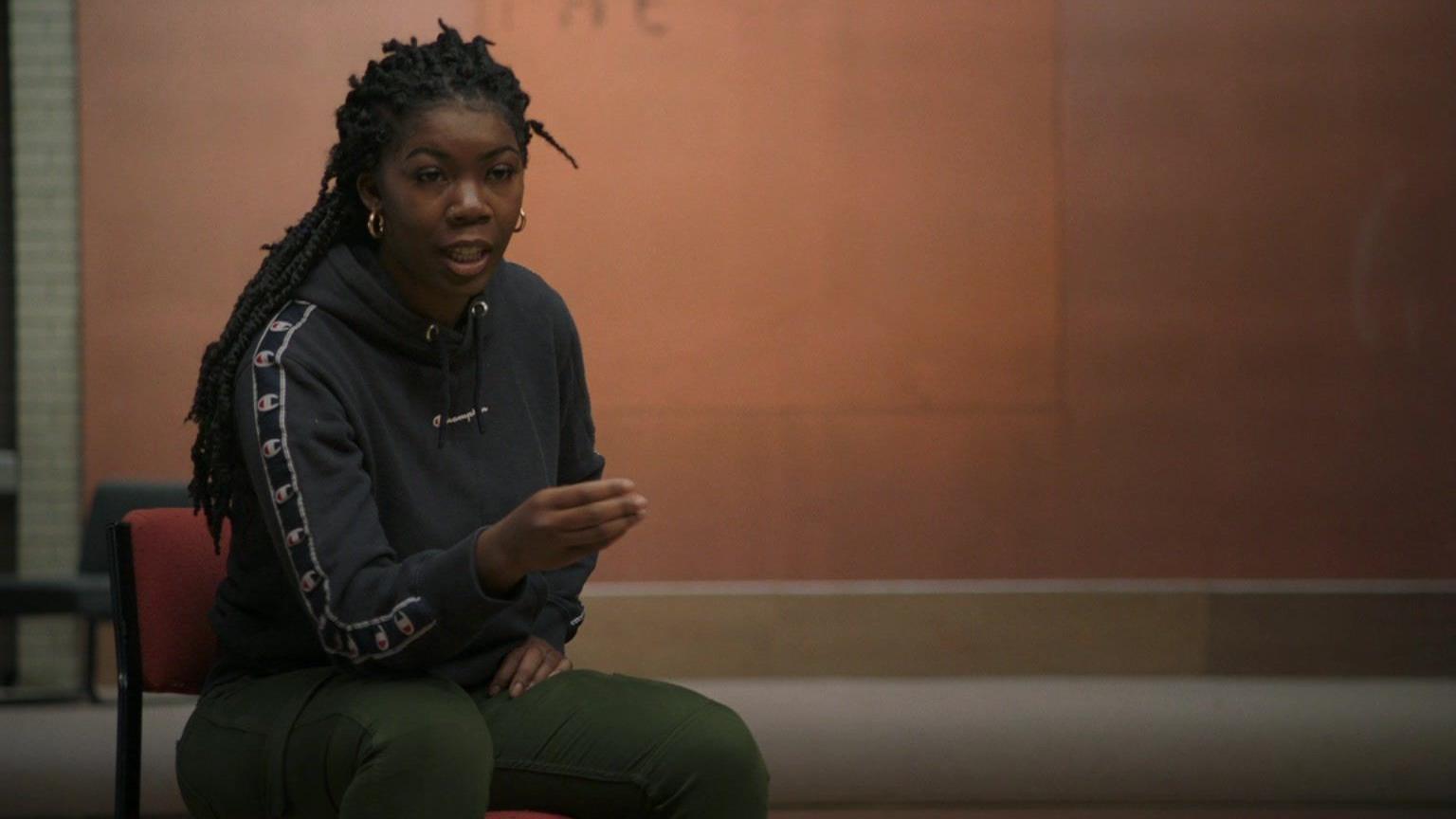
Tamar said the experience was like a 'sisterhood'
For Tamar, one of the most alarming things was the number of women who kept returning.
She said: "The amount of people I saw coming back was really ridiculous. There were drug addicts, those who had experienced domestic or sexual abuse; all these things that they were not getting help for.
"When I spoke to them, there was an emotional disconnect and they were happy to be inside.
"It made me question: 'What support are they not getting, that means that they happiest when they are back in this place?'."
Daisy-May Hudson, one of the documentary's co-directors, explained that they hoped the film would give people some compassion towards the women who were imprisoned at Holloway.
She said: "It was to give their stories context; prison is perceived as this place that we just send people off to, but we know nothing about the lives of the people inside there."
'Where did they go?'
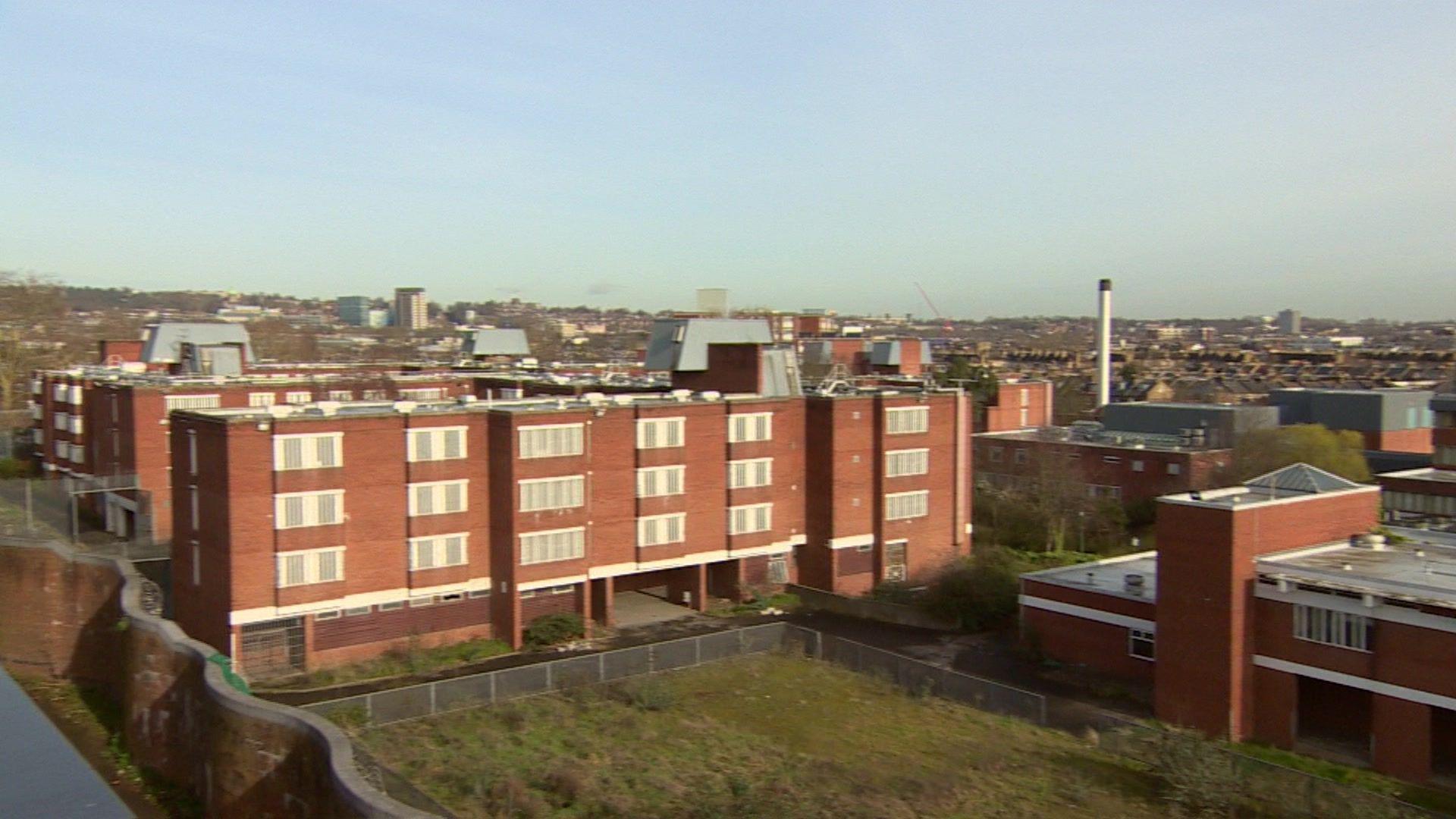
The prison, once the home of suffragettes and the murderer Myra Hindley, closed in 2016 after it was deemed "too difficult to run"
The filmmakers and the former inmates wanted to address why the women ended up at Holloway in the first place, and how justice might be done in future.
"Everyone thought Holloway going to be there forever. It really shows that systems that we think will be there forever can crumble," fellow co-director Sophie Compton told BBC London.
"We were going past the building quite a lot; we started to speak to women who had been in the prison and we realised how significant it was as a site for British women's history and we felt that needed to be marked and honoured.
"When a massive prison is bulldozed, that invites so many questions around what is going to be built in its place.
"Where are the women that were in prison in Holloway when it was bulldozed? Where did they go?"
Tamar said that returning to Holloway was "very personal".
"After I was released, I found there was never a place or a space that I could ever get that power back that was taken from me, and to heal," she said.
"I was so caught up with practical things like getting back into society, I didn't have time to recreate myself.
"The [therapist] session really helped me a lot, sharing with the other women. I felt like it helped me to build my strength of character back.
"Going back on my own free will, compared to all the rules I had to live by when I was last there, that was liberating for me."
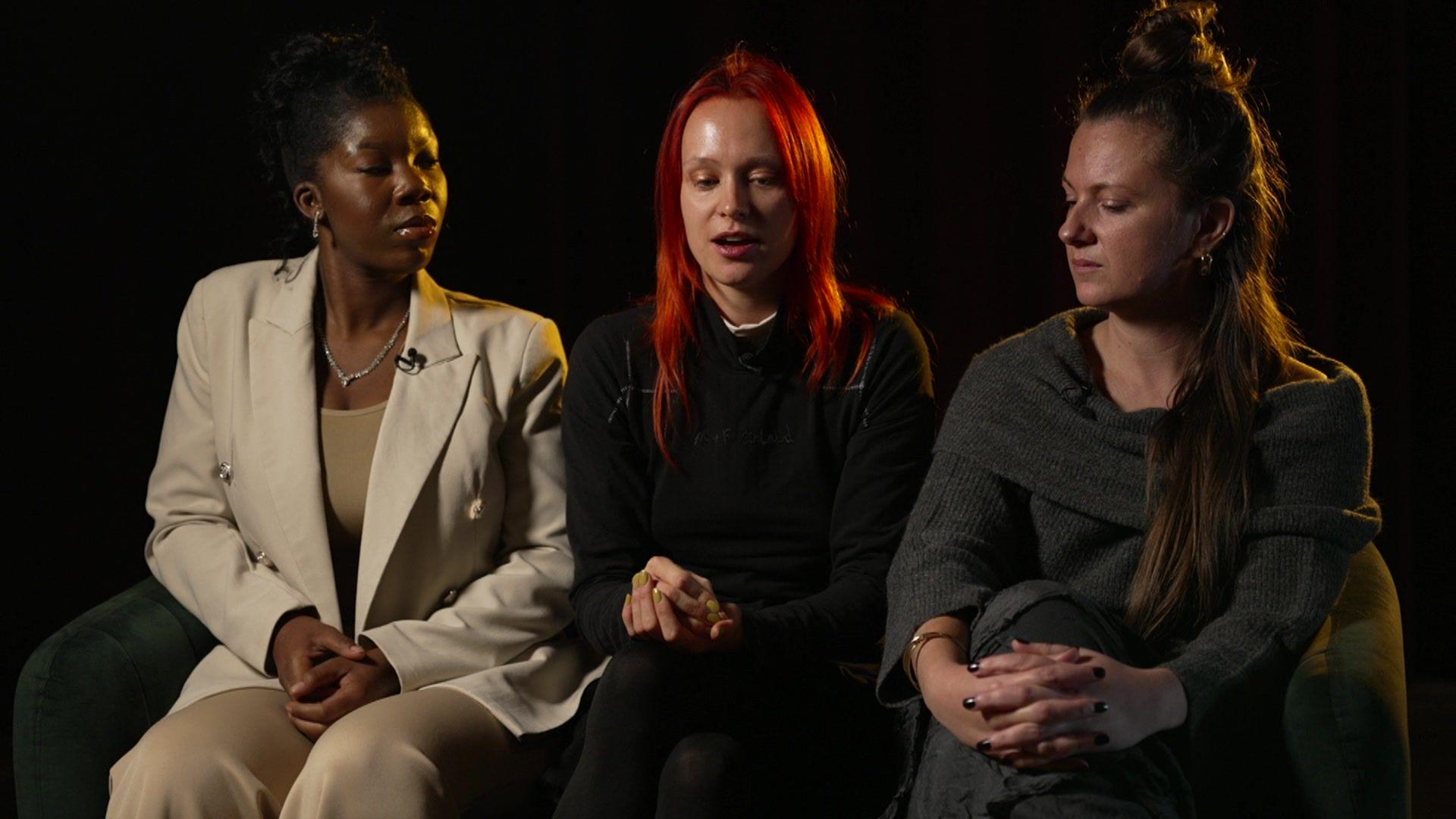
Tamar Mujanay with directors Sophie Compton and Daisy-May Hudson
"There's a term that the system used called 'decanting', to move prisoners," Sophie Compton said. "So women were decanted and I think that's so lacking in humanity, agency and empathy.
"We always wanted this film to act as 'I kind of had an invitation to rethink', and an invitation to reimagine some of these systems.
"Now it's finally coming out, there is a big public conversation happening around the women's justice system.
"Finally more people in power are saying things that we have been saying for so long, which is that our society is addicted to punishment and that punishment is the only way that the system interacts with people who have done something wrong.
"That fails to put context and hence create the possibility for things to change, and for that reason we felt like it's really important for us to engage with Holloway's closure."
Holloway was showing at the London Film Festival and will be in cinemas in the spring of 2025.
Listen to the best of BBC Radio London on Sounds and follow BBC London on Facebook, external, X, external and Instagram, external. Send your story ideas to hello.bbclondon@bbc.co.uk, external